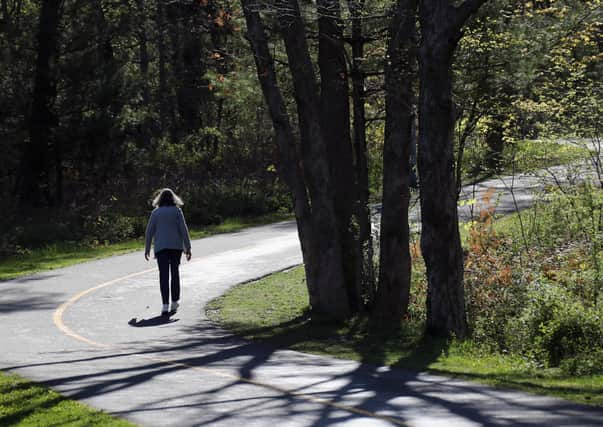‘Lockdown loneliness’ is being seen as a serious social problem but it won’t last forever - YEP opinion


The coronavirus pandemic has drastically impacted our lives. One way it has impacted us all is through social isolation. Many governments have instructed their citizens to avoid all unnecessary contact with others. One outcome of self-isolation has been the rise in reported cases of loneliness.
This isolation has been dubbed the ‘lockdown loneliness’.
The Covid-19 pandemic has resulted in an increased political interest in viewing loneliness as a serious social problem. Boris Johnson previously announced his intentions to alleviate the effects of loneliness back in April. His actions in tackling the problem can be seen with the implementation of support bubbles to allow people to safely meet friends and family.
Advertisement
Hide AdAdvertisement
Hide AdResearch has found that the biggest age group to suffer from loneliness was people aged between 16 and 24. A study from the Office of National Statistics showed that nearly 10 per cent of people, aged between 16 and 24, stated they ‘often or always felt lonely’. Loneliness has been found to negatively affect physical health, mental health and general wellbeing. The Lancet Child & Adolescent Health Journal found that young people between 10 and 24 were more vulnerable to the negative effects of loneliness because, at this stage, they have a heightened need for peer interaction.
In Leeds, mental health charities and the City Council have sought to counteract the effects of loneliness. Leeds Council have produced handouts on how to tackle loneliness whilst Mind has provided appointments for counselling. The charity MindWell has also created a Coronavirus Mental Health Information Hub where you can find a wide range of support from self-care resources to online support.
To counteract the effects of social deprivation, young people have actively been looking at different ways in which they can interact with each other. Social connection has been made possible through utilising many different platforms, such as social media and gaming.
Now that social distancing measures have started to relax further, people have also been able to meet up with their friends in a socially distanced way, helping to lower the repercussions of loneliness.
Advertisement
Hide AdAdvertisement
Hide AdThe detrimental effects of lockdown loneliness can, to an extent, be dismissed as only affecting people on a temporary basis. This short period of isolation is therefore likely to only have mino, momentary effects on the individual.
Research has actually shown that spending some time alone can help improve productivity, deep thinking and concentration levels.
Across social media, there has been endless images of baked bread, yoga poses and movie nights that people have indulged in to keep themselves busy during lockdown. I have even decided to learn a new language, just to add a little bit more structure to the day.
These little hobbies that many have adopted have helped us to cope with all the changes that have been brought about by the coronavirus pandemic.
Comment Guidelines
National World encourages reader discussion on our stories. User feedback, insights and back-and-forth exchanges add a rich layer of context to reporting. Please review our Community Guidelines before commenting.